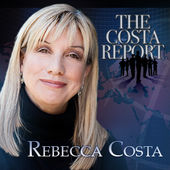For the past forty years, the moral grounds for legally sanctioned executions have been passionately argued by proponents and opponents, with opponents making slow gains. Beginning in 2011, approximately one state per year has abolished capital punishment – Illinois in 2011,Connecticut in 2012, Maryland in 2013 and Nebraska in 2015. Yet, in spite of the slow drift, thirty-one states presently enforce the death penalty, and nearly 3,000 inmates are waiting for their sentences to be carried out.
According to the host of CNN’s ‘Legal View’, and former anchor for CourtTV, Ashleigh Banfield, the time has come to put facts ahead of moral arguments, “It’s not so much about the philosophy behind whether the death penalty is right orwrong. I still go back and forth about that,” admitted Banfield. “We’re really good with crime-fighting tools, which makes you think we’re getting better and better at being more accurate when we make the ultimate decision to take someone’s life. The truth of the matter is, we might be really good with the science, but we’re really bad at handling the science. I’ve witnessed time and time again catastrophic failures of “perfect material” – meaning the material is perfect, but the people aren’t.”
Banfield asserts that any margin of error is cause enough to take death off the table. But what, exactly, is the ‘margin of error’ when it comes to death penalty convictions?
Here, the facts speak for themselves: Since 1973, new DNA evidence has lead to overturning 130 death row convictions. Last week the advocate group, Project Innocence, reported that errors in handling and testing scientific evidence have played a role in 46 percent of wrongful convictions. Translation: half of the wrongful convictions are due to human error. “It’s not about how bad the guy (or gal) is we’re prosecuting, – it’s about how good we are at doing it. And we’re not. We make too many mistakes.  Until the imperfect people operating the court systems become perfect, I really have an issue with pulling the lever,” said Banfield.
When it comes to arguing the facts, the number of human errors isn’t the only data mounting in favor of abandoning capital punishment. The popular notion that the death penalty acts as a deterrent to violent crime is also under fire. In 2014, eighty percent of all executions were performed in the South â yet theses same states reported the highest murder rates in the country. By contrast, states in the Northeast responsible for less than 1 percent of all executions reported the lowest murder rates. Similar studies also reveal the same inverse relationship between the death penalty and heinous offenses – causing the National Research Council on the National Academies to state â after more than three decades of research – that any claim that capital punishment is a deterrent is “fundamentally flawed” and should not inform public policy.
And then there’s the economic argument for capital punishment. As if growing evidence of human error and the fact that the death penalty does not deter crime isn’t enough, recently, the Palm Beach Post reported the death penalty costs Florida $51 million a year more than the cost of imposing life sentences on all first-degree murderers. Â It turns out it’s much less expensive to warehouse a lifer than execute them. And bear in mind, that’s only the cost of carrying out the sentence. The Kansas Judicial Council reminds us that the cost of death penalty defense is about $400,000 – compared to $100,000 to defend a non-death penalty case. Â “Most people think it’s cheaper just to kill people. It is about ten times more on average the cost to kill someone. It (also) takes 20 years on average to kill someone – because our Constitution guarantees you have your right to fair justice … This means an automatic appeal whether you want it or not,” said Banfield.
But among all the facts that make it difficult to argue in favor of capital punishment is America’s standing among other nations that embrace the death penalty. Today, the U.S. ranks fifth in executions behind countries with which the U.S. shares little else in common: Iran, Saudi Arabia, Iraq and China. More importantly, the American government executes more citizens than nations criticized for their brutal, corrupt regimes, such as North Korea, Pakistan, Afghanistan, and Yemen.  According to Banfield, “It’s sobering when people discover we belong to a dubious club of those in the world who sanction the death penalty.” Though there’s no easy way to determine the effect capital punishment has on U.S. moral authority abroad, it certainly poses a challenge when America attempts to address human right issues in countries that have no death penalty.
The bottom line? Once the moral issue of whether the death penalty is right or wrong is set aside, it’s easy to see why opponents like Banfield feel the argument can be put to rest. Capital punish-ment does not serve as a deterrent, it is not economical, it affects the country’s ability to ‘lead by example,‘ and most importantly the process leading to conviction is error prone. When it comes to something as conclusive as imposing a death sentence Banfield offers a stern warning: “You don’t get a mulligan (a second chance) when you screw up!”
You can listen to this episode and may others On Demand anytime or listen to The Costa Report live every Tuesday at 6am PST.






